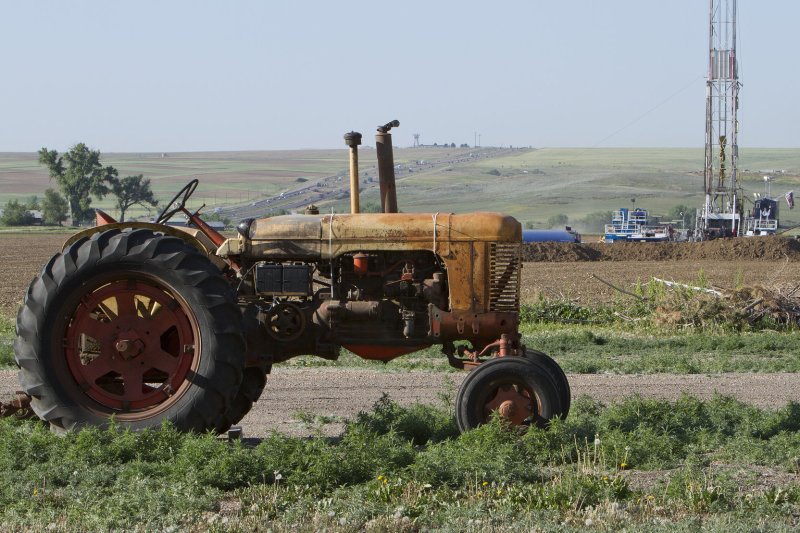British energy company BP says it brought drilling techniques it mastered in the United States to a natural gas field in Oman. File photo by Gary C. Caskey/UPI |
License Photo
Sept. 25 (UPI) -- British energy company BP said it brought lessons learned from hydraulic fracturing in the United States to start production at a natural gas field in Oman.
BP and the Omani Ministry of Oil and Gas announced the start of production from the Khazzan natural gas field, BP's sixth and largest start-up for the year.
"Khazzan further demonstrates BP's ability to consistently deliver large, complex projects on schedule and within budget while applying the industry-leading skills and technology we've developed globally," BP CEO Bob Dudley said in a statement. "In this case, tight gas techniques we perfected in the United States have been brought to Oman and we are very pleased with the results."
Hydraulic fracturing has been used for decades, though improved techniques like horizontal drilling have led to considerable production gains for oil and natural gas in the United States. The first phase of operations from the Khazzan development in Oman will plateau at 1 billion cubic feet of natural gas per day. That's about half the September rate for gas production from the Bakken shale field in the United States, the least productive shale basin for natural gas in the country.
Liam Yates, a research analyst at consultant group Wood Mackenzie, said in a statement emailed to UPI the Khazzan development is significant for Oman because it offsets declining production from elsewhere in the country.
"BP's Khazzan project will be hugely important for Oman's gas supply, with Phase 1 alone supplying 25 percent of Oman's gas by 2019," he said.
A second phase of operations will add another 500,000 million cubic feet per day. Capital expenses, meanwhile, are estimated at $12 billion, about 25 percent lower than initially planned.
Isam bin Saud al-Zidjali, the CEO of the Oman Oil Co., BP's minority partner, said Khazzan will be a boost for the national economy.
"This increment of gas supplies will provide feedstock for development of downstream and petrochemical industries," he said in a statement.
It could also lead to incremental gains in shipments of liquefied natural gas.
Moody's Investors Service found lingering regional disputes with Qatar posed a credit risk to members of the regional Gulf Cooperation Council, though Qatar and Bahrain are the most exposed to risk. Oman, however, could actually benefit because of trade diversions that resulted from the dispute, though the overall impact on growth will be negligible.















